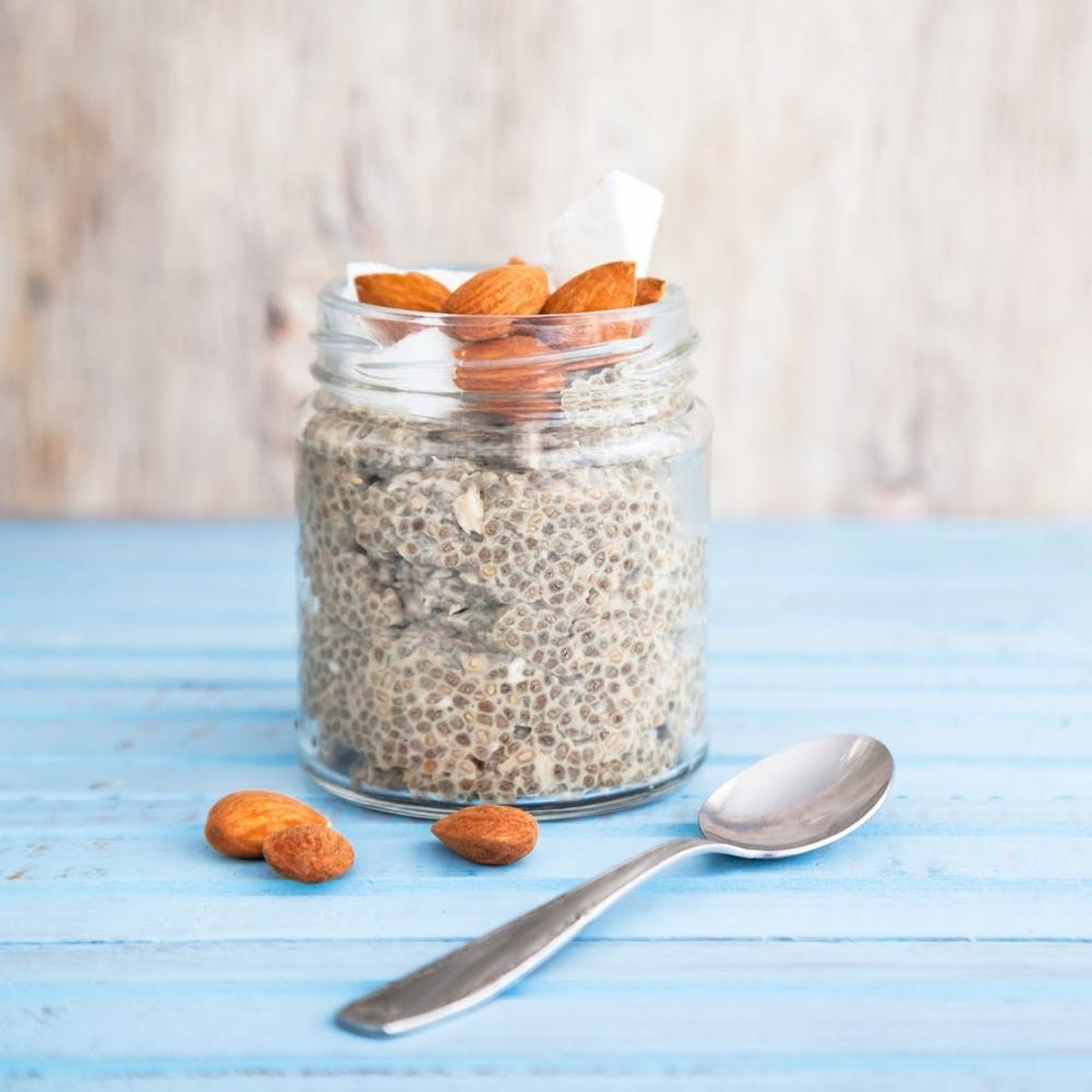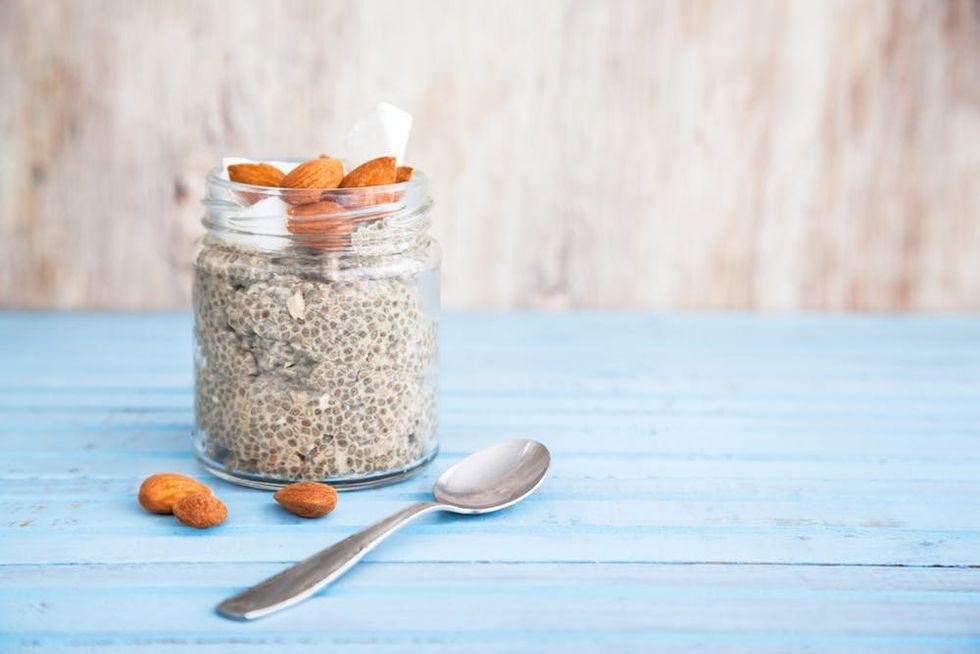Hint: It’s not protein.
Eat More of This One Nutrient to Reduce the Risk of Four Major Diseases

There may be no one magic bullet for better health, but sometimes research comes along to show just how impactful a single nutrient can be. A recent review published in the highly regarded medical journal The Lancet found that eating more of just one dietary substance led to lower rates of heart disease, stroke, type 2 diabetes, and colon cancer.

Was it a vitamin? A mineral? Or the ever-popular protein? Nope. The edible element responsible for these dramatic effects was none other than that most humble of nutrients: Fiber.
What the Study Found
The review in The Lancet looked at “135 million person-years” of data from 185 studies that included over 4,600 participants. From this vast array of information, the authors determined that the risk of experiencing the four major diseases began to fall when people consumed 25 to 29 grams of fiber per day. It’s an interesting find that seems to confirm the recommended Daily Value of fiber is spot-on at 25 grams for women (and 38 grams for men).
The study also discovered that, as far as fiber for disease prevention, it seems more is better. According to its authors, “Higher intakes of dietary fiber could confer even greater benefit” for risk of heart disease, stroke, type 2 diabetes, and colon cancer. In addition to these perks, people who consumed more fiber had lower body weight, systolic blood pressure, and total cholesterol.
The Connection Between Fiber and Disease
So what’s the connection between your morning bowl of raisin bran and warding off a host of scary diseases? It seems fiber plays a unique preventative role against each of four major ailments. When it comes to heart disease and stroke, fiber’s ability to lower blood pressure and blood cholesterol are the likely keys to its disease-fighting powers. The anti-inflammatory nature of fiber also makes it helpful for keeping these cardiovascular issues at bay. “Fiber may affect C-reactive protein, a biomarker for inflammation linked to the risk for cardiovascular disease,” says registered dietitian Karolin Saweres, RDN, LD.
Fiber has a long history as a food-as-medicine treatment for type 2 diabetes — so it’s not surprising getting more of it could help prevent this disease too. “Fiber delays absorption of glucose and may improve insulin sensitivity,” explains Saweres. These factors are key for improving blood sugar levels, the primary concern in managing diabetes.
Finally, colon cancer may be the disease with the most obvious connection to fiber. We all know getting enough fiber keeps things running smoothly in the digestive department — but this may not actually be why getting enough of it can help prevent cancer of the colon. Instead, some experts have speculated that fiber’s impact on healthy weight and reduced inflammation (two known factors in cancer risk) are the more likely causes.
Getting More Fiber in Your Diet
When you think fiber, your mind may conjure up unappealing images of Grandma’s prune juice and an endless stream of beans. But getting enough of this nutrient doesn’t have to be a chore. Opting for plant-based protein in place of meat, adding beans or lentils to wraps, soups, or salads, and adding greens to smoothies can all help you reach your daily target. Maybe you make your afternoon snack a dedicated time for fresh fruits and veggies. Or sprinkle nuts or seeds onto salads, cereals, or your morning oatmeal.
Though it’s best to get fiber from food sources, says Saweres, some people may benefit from a dietary supplement. “If someone is a picky eater and has issues with constipation due to not getting enough fiber in their diet, then I would recommend supplements,” she notes. While you’re at it, don’t forget the water: “I always recommend increasing fluid intake when increasing fiber intake,” she advises.
Can You Get Too Much?
If you’re heaping on the fiber, you may wonder: Is it possible to get too much? Aren’t there any, um, adverse events that might happen from going overboard with fiber? (Show of hands if you’ve ever seen the old SNL sketch “Colon Blow.”)
Technically, according to Saweres, “There’s no upper limit.” While it’s possible you could experience unpleasant symptoms like bloating, gas, and (believe it or not) constipation from too much fiber, it’s unlikely you’ll reach this point through diet alone. Some experts have noted that these effects kick in around 70 grams of fiber per day — about twice the recommended daily value for men and nearly three times the DV for women. Unless you follow a vegan or raw diet or are taking a serious supplement, you probably don’t need to worry.
So bring on the beans and greens — and heap up a plate of disease-fighting power.
What’s your favorite fiber-rich food? Tweet us @BritandCo.
(Photo via Getty)



















